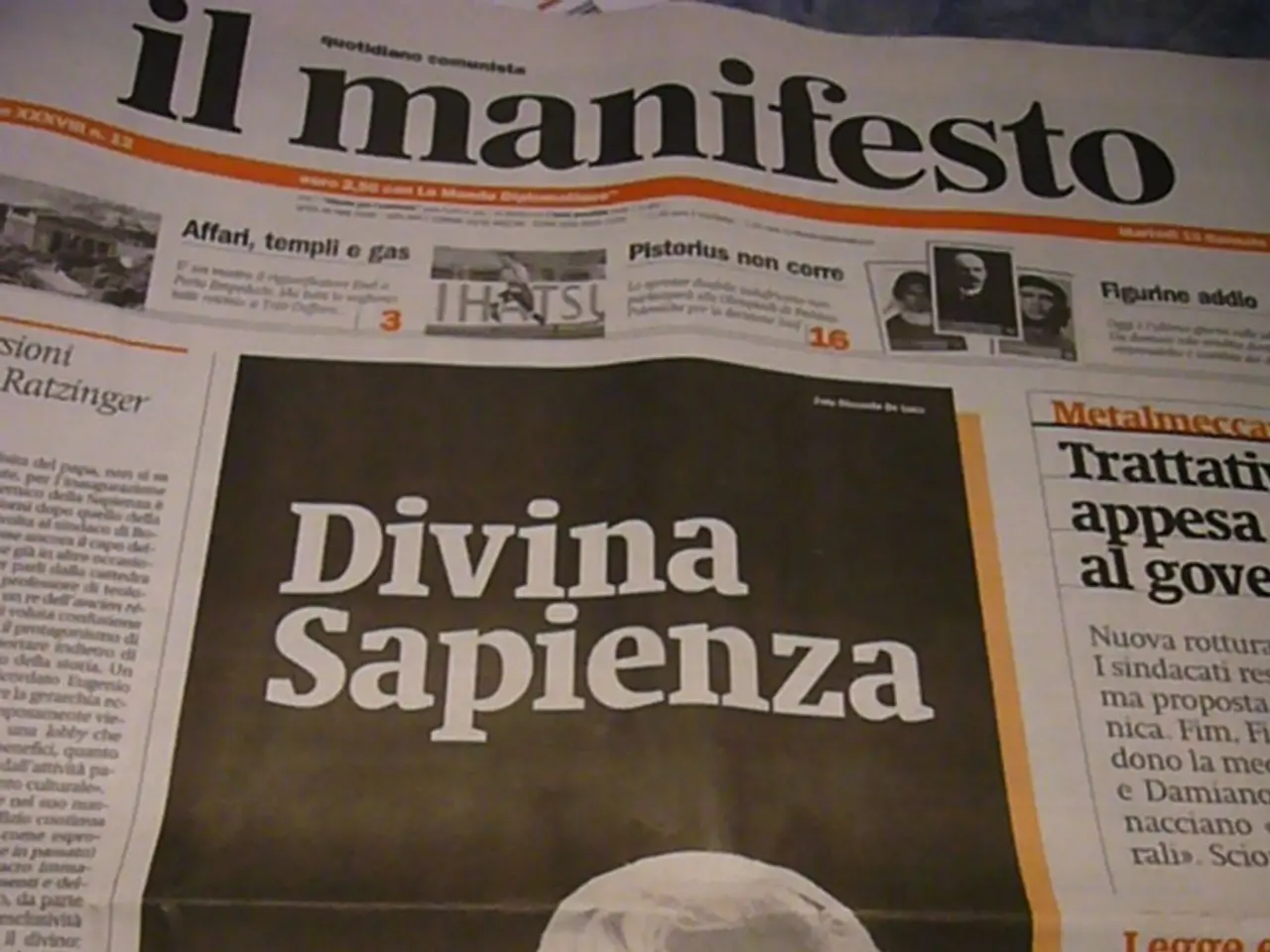Business writers transitioning to authors: SABEW panel outlines path for journalists venturing into book authorship
In a panel hosted by the Society for Advancing Business Editing and Writing (SABEW), a group of esteemed journalists shared their experiences and insights on the transition from beat reporting to book writing. Moderated by Alan Deutschman, professor of journalism at the University of Nevada and author of "How Steve Jobs Changed Our World," the discussion delved into the challenges and rewards of co-authorship, the importance of collaboration, and the keys to writing a successful book.
One of the main points emphasized by the speakers was the value of choosing a lesser-known topic. Bethany McLean, a renowned journalist and author, underscored the distinction between the obvious book and the hidden gem. She argued that writing about a heavily covered topic comes with a built-in audience that cares about the story, but choosing the road less traveled allows reporters to really take ownership of the story and lessens the competitive stressors of covering a well-known issue.
Another crucial factor for a successful book-worthy story, according to Diana Henriques, author of "The Wizard of Lies" among other books, is the ability to resonate with a universal emotion that can captivate all readers. She suggested that authors should look for a story that evokes feelings of empathy, fear, or wonder, as these emotions can help to create a powerful and engaging narrative.
The panelists also discussed the importance of collaboration in co-authorship. They emphasized that collaboration can lead to stronger narratives than those authored by a single writer, as each author can bring their unique strengths to the table. Knowing one's own strengths and those of one's co-author is crucial for a successful partnership, and understanding each other's roles is key. For example, one person may excel at reporting while another may excel at rewriting, and recognizing these differences can help to create a harmonious and productive co-authorship.
In addition to collaboration, the speakers also highlighted the importance of planning for the logistical realities of book publishing. Henriques encouraged reporters to plan for tasks such as copy editing, footnoting, fact checking, and legal reviews early on in the process to ensure a smooth transition to the publishing stage.
The panelists also addressed the economics of big-time publishing, noting that advances are getting smaller and harder to come by. They suggested that journalists consider self-publishing as a promising path for getting long-form work out there. There is a proliferation of niche publishers or smaller publishers who know what they want to publish, and finding the right match is important for getting a book published.
Passion for the topic was also emphasized as the most important factor in writing a book, not the desire for financial gain or fame. Ryan Mac, co-author of "Character Limit: How Elon Musk Destroyed Twitter," found it challenging to transition from writing to-the-point stories to writing an in-depth book, but emphasized the importance of extensive outlining and practice.
Trust was another key theme of the discussion, with the speakers noting that it is the foundation of successful collaboration in co-reporting and co-authoring. For journalists wondering whether a book project can coexist with their day job, some speakers recounted their editor's flexibility to take time off - a book leave - to focus on their manuscript, while others had to work on their beat and book in tandem.
The authors who participated in the panel, including Steven Pearlstein, Lucy Kellaway, and Rana Foroohar, shared their own experiences and insights on the challenges and rewards of book writing, offering valuable advice for journalists looking to make the transition from beat reporting to book writing. Overall, the panel provided a wealth of information and insights for journalists looking to write a book and offered practical advice on how to navigate the publishing process.








